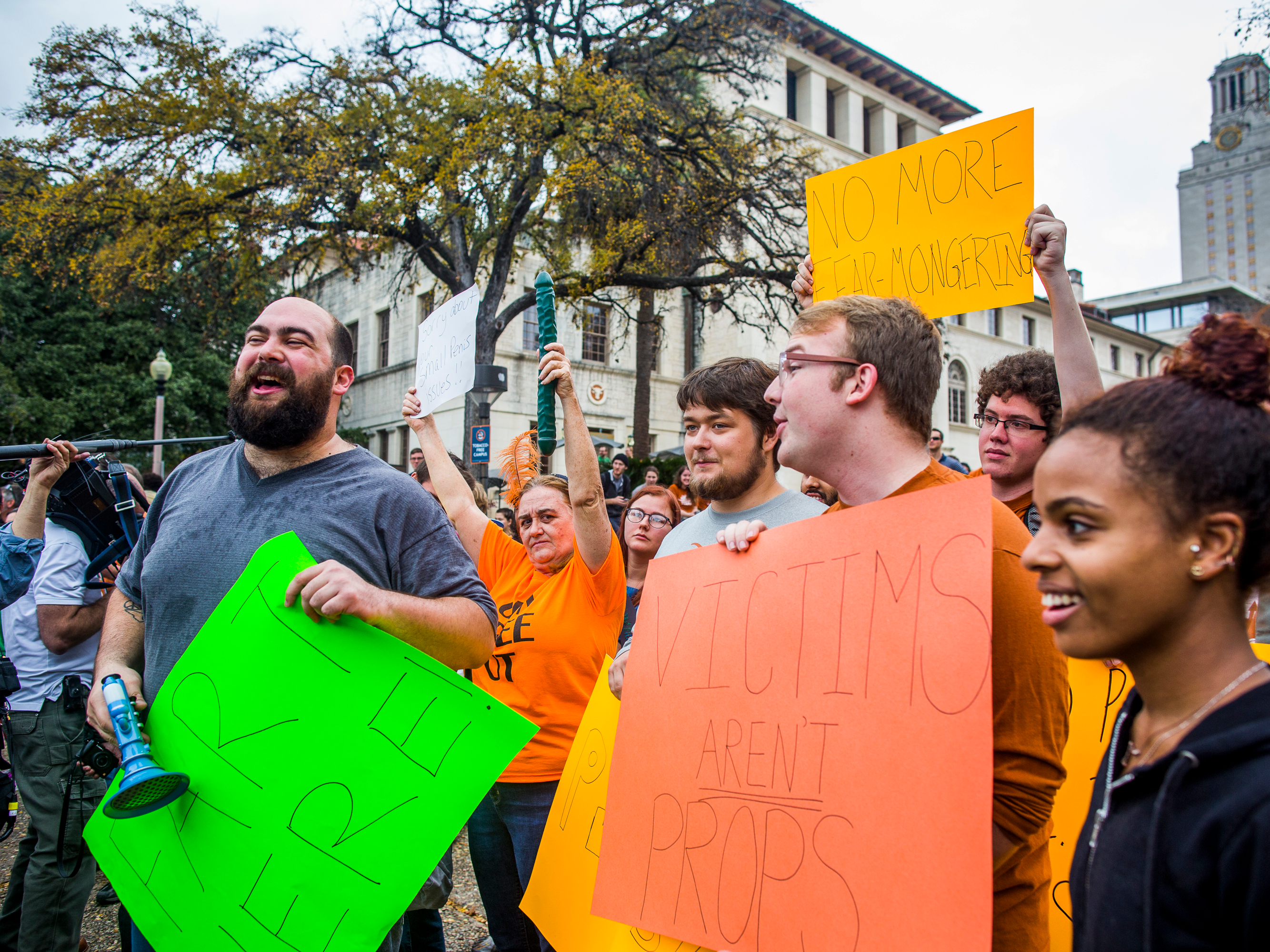As high-school seniors recently admitted to college start to think about furnishing their dorm rooms, they’ll soon learn there are some fairly universal items they will need to avoid.
Items that pose a risk of hazard to students, like toasters, space heaters, and even Christmas trees, are frequently banned from their rooms.
But another set of items, once banned, are increasingly allowed on college campuses across the nation: concealed weapons.
“Utah was the first state to allow guns on campus in 2004,” Andy Pelosi, executive director of The Campaign to Keep Guns Off Campus, told Business Insider. “Since then, there has been a trend of pretty much one state a year changing their laws,” he continued.
In the year 2000, no states had laws on their books that allowed guns on college campuses. Today, 10 states have signed such laws. And an eleventh, Georgia, passed such legislation in March. It’s awaiting the governor’s signature.

Campus carry laws generally only pertain to public colleges and universities, though some require private colleges to take an affirmative step to opt-out.
The mass shooting at Virginia Tech in 2007 may have accelerated campus carry laws. That's when the gun lobby picked up its fight in support of campus carry, according to Pelosi.
Ten years ago this April, Virginia Polytechnic Institute senior Seung-Hui Cho shot and killed 32 people and wounded 17 others before killing himself. The tragedy brought both proponents and opponents of gun control into the fray.
Those in favor of reforming gun laws cited Cho's history of mental health issues, and argued he should have never been able to purchase two semi-automatic weapons to carry out the attack. On the other side, opponents of gun control said that an armed student or faculty member could have prevented, or diminished, the casualties.
Since then, other arguments for guns have become popular. As colleges grapple with sexual assault prevention on campus, some say that guns will help women protect themselves.
Legislators also maintain that second amendment rights don't stop on college campuses, or that people have a God-given right to carry their guns on campus.
Georgia Rep. Mandi Ballinger, who sponsored the state's recently-passed bill argued as much in March.
"It's the God-given right that people have to not be a victim in the state of Georgia," Ballinger said. "States that have enacted campus carry measures have become safer," she continued.
Gun-control advocates say there is little evidence to support such a claim, and researchers at Johns Hopkins University released a study stating the opposite.
"Increasing gun availability in campus environments could make far more common acts of aggression, recklessness or self-harm more deadly and, thus, have a deleterious impact on the safety of students, faculty and staff," they wrote.
Yet, more campus carry bills emerge every year. Already this year, 16 states that don't currently allow concealed weapons on campus have introduced introduced such bills. Some, like New York, are particularly surprising.
"I have never seen a New York bill before," Pelosi said, before explaining it's unlikely to advance.
Still, he cautions against the belief that campus carry laws only impact people in states that have passed such laws.
"People send their kids out-of-state all the time," he said.
